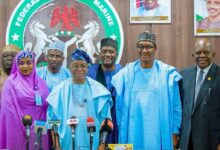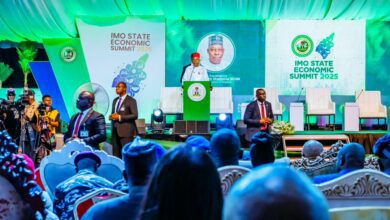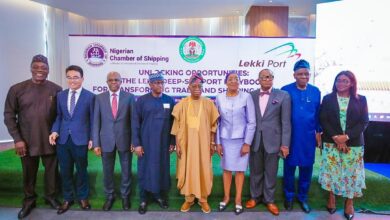Nigerian Economy On The Way To Real Liberalisation And Diversification

It is essential for Nigeria to maintain monetary and financial stability. In a stable economic environment, the real sector flourishes, and funds flow freely to the viable sector of the economy. Therefore, monetary and fiscal authorities should focus on measures encouraging economic liberalisation and diversification.
Agriculture, manufacturing, mineral deposits, and financial technology services are potential growth areas for Nigeria, the largest economy in Africa in terms of GDP. According to Techpoint, the sub-sector of financial technology services received 73.5 percent of the 1.09 billion USD raised by start-ups in Nigeria in 2021.
The country was ranked first in Africa by PWC for venture capital investment. This presents the nation as the preferred investment destination on the continent.
Nigeria is endowed with approximately 44 high-value solid minerals, but in 2021, they only made up 0.85% of the GDP, signifying a lack of adequate investment in the sector. On the other hand, exports increased by 19.7 billion USD between 2016 and 2021, indicating the economy’s potential for additional expansion.
As an advocate of neo-capitalism, my concept might not seem appealing to the general public because it would cause immediate economic suffering for the
population. But at the same time, economic agents would be persuaded to work for their self-gain and not purely for the interest of society as a whole. In the pursuit of our self-interest, we tend to produce value that satisfies overall customers’ needs.
The collective effort to increase our net worth by creating value allows the flow of resources to suppliers, employees, and government as taxes, all in our effort to satisfy our customers.
The government collects these taxes to maintain public goods and render services while we demand accountability and stewardship of public resources. If this system is successfully applied from the perspectives of big-firm capitalism, state-guided capitalism, and entrepreneurial capitalism, Nigerians will be liberated from wastage and the misapplication of resources.
Reducing or eliminating government restrictions on private enterprise and trade is the goal of economic liberalisation, commonly referred to as economic liberalism. The main objectives of economic liberalisation are the free flow of capital between nations, the effective distribution of resources, and the creation of competitive advantages.
In the Nigerian context, liberalisation should take the shape of limited government participation in areas where its intervention creates a partial allocation of resources, distortion in the market, and misapplication of resources. In 2007, I was among the patriotic Nigerians who commended President Yar’aduwa for reversing the sale of refineries, but subsequently changed my position as events unfolded.
Research showed that Nigeria spent more than 11.35 trillion naira (25 billion USD) to fix three moribund refineries in 10 years that are still working below 30% capacity. Suppose the country got rid of them in 2007 as planned; we could have saved an estimated 18.16 trillion naira.
This singular act might have revitalised the economy by generating significant tax revenue, opening job opportunities, and supplying input to our local industries. Similarly, Nigeria would have prevented the brain drain brought on by the enormous migration of talented young Nigerians.
The removal of the fuel subsidy caused serious pain to average Nigerians completely detached from government bureaucratic discourse. The majority of the populace provides water, food, security, and medical care to themselves and their families; as such, they believe that fuel subsidy removal is another step to impoverish them by creating an oligarchic system.
Conversely, technocrats and real investors in the oil sector believe that fuel subsidy is not a sustainable business for the government and rather brings distortion in the market. They, therefore, support any scheme where the government takes a back seat and only gets involved to collect taxes and fulfil its oversight duties.
In a period of depleting funds, massive debt burdens, and corrupt institutions built on mediocrity, the new administration had no choice but to take the bull by the horns. Moreover, the removal of fuel subsidies exposed the mouths that our generous and shrinking economy feeds.
Recent data from our fellow ECOWAS members, of which we serve as benefactors, shows that Nigeria extended its version of subsidy beyond its border. This “endowment fund” in the name of fuel subsidy led to the suspension of the activation of the Cameroon refinery. It was the same reason the relevant agencies never agreed on our daily consumption.
Looking at fuel subsidies from another perspective, we can see how they had the tendency to create insecurity. The avaricious ones living large from these excesses would certainly break any law and comprise any security apparatus to allow the flow of smuggled fuel out. This served as an avenue for more funding to saboteurs and bad eggs among the security agents at the border. Therefore, the removal of the subsidy would cut off that aspect of insecurity at the border region, thereby saving the community from security challenges.
On the other hand, the Debt Management Office (DMO) puts our total debt at 49.85 trillion at the end of the first quarter (Q1) of 2023. World Bank asserts that the country spent 93.3 percent of its revenue on servicing debt in 2022 and predicts that fiscal pressure will increase if the oil subsidy is not phased out by June 2023. As the trend continues, KPMG predicts the ratio will grow to 100 percent in 2023.
According to the firm, the recent securitisation of N22.7 trillion “ways and means” by the Senate and N8.8 trillion expected new borrowings will likely raise the total debt stock to N77.8 trillion. All these tell us that the regime had no option but to cut its losses and face the realities on the ground.
Liberalising the economy gives an average Nigerian the self-drive to pursue his economic goals undeterred. Many will argue that the previous regime’s intervention schemes in the agricultural sector greatly revamped the sector.
Meanwhile, in reality, the ban on rice importation and the restriction on utilising our hard-earned FX for foreign rice importation did the job. The price of local rice (foreign standard) sprung up due to the excess demand. In the meantime, rice farming and milling became one of the most lucrative businesses; early investors became overnight moguls, while the farmers expanded their production by sourcing high-quality seeds and employing better farming techniques.
This was exactly the justification for the success in the sector, not the government intervention schemes. Meanwhile, the floating exchange rate has the potential to do the same to the entire real sector if implemented properly.
Unification of rates is difficult to achieve but is inevitable for the country’s future.
However, speculators would always speculate to create temporary arbitrage for their self-gain. Just like in the case of fuel subsidy removal, there will soon be no “queue” to access Fx in the station (banks), as the market will allocate Fx more correctly than the monetary authority’s visible hands.
The floating of Fx will lead to the price of forex reflecting all the available relevant market information, which eventually closes rooms for arbitrage. Whether we like it or not, the country Must face the reality. And the monetary authority needs to be bold enough to stop any excesses that hinder the free flow of FX to the critical sector of the economy.
On the other hand, the floating Fx regime gives a market-based incentive that
encourages remittance from Nigerians on the “Japa” mission. Being professionals, they are a good segment of foreign exchange to Nigeria. As professionals, they left Nigeria for better economies that befit and promote their talents. This group of Nigerians in the diaspora are still looking forward to a better Nigeria to bring in funds to support their family and start a new business. Records showed Nigeria received 20.94 billion USD in 2022 alone as foreign remittances.
The magnitude of oil theft is estimated at 65.7 million barrels, translating to a 2.3 trillion naira loss of oil revenue within 12 months. Also, about 460 illegal connections were said to have been removed from the major pipeline capable of transporting 180,000 barrels of crude oil per day to the Bonny export terminal.
Conversely, the swift changes in oil demand and the new oil political dimension in wartime made oil economies unstable. The struggle of Iran, Saudi, UAE, and other oil-producing nations to diversify and align with BRICS shows the need for Nigeria to reassess its situation. Diversification is the best way for the country to survive these self-inflicted pains. And that is enough to tell us that the country should diversify away from oil as soon as possible.
While the government is revamping the oil sector to deal with the oil theft where
our total production was forcefully compelled to nosedive, the government
should also look at the option of improving foreign exchange earnings from the export of agricultural produce. This will improve the flow of FX to the sector via foreign direct investment and portfolio investment. To buttress the fact, in the first quarter of 2022 alone, Nigeria exported sesame seeds valued at 49.43 billion naira to China, Japan, Vietnam, and Turkey.
Furthermore, the mining and export of gold, lead, lithium, and baryte in the country had also projected Nigeria as a country with huge untapped mineral deposits, with about 80% of exports (either legal or illegal) finding their way to China. A floating FX regime can potentially reduce FX truncation, which increases the nation’s foreign exchange earnings.
In a nutshell, Nigeria could derive many economic benefits by liberating its economy from the perspective of big-firm capitalism, entrepreneur capitalism, and state-managed capitalism. A neo-capitalist system based on expansive private enterprise, transparent social welfare programs, and prudent government intervention would save the country.
However, excessive government
interventions in the real sector witnessed serious negative economic vices like adverse borrowers selection, erosion of institutional viability, market distortion, moral hazard and policies summersault, which served as disincentives to the real
players in the market.
The country has to chart a new course by removing stumbling stones that fan the ember of corruption at the federal and state levels for the citizens to feel the impact of the “renewed hope” slogan.






